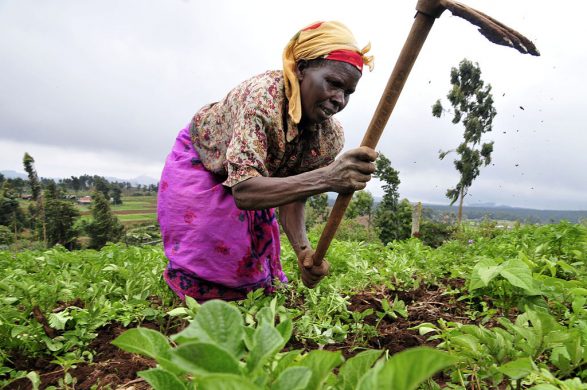GENEVA, 29 September 2016 (UN News): With Africa set to play an ever-growing role in feeding the world’s bourgeoning population, the United Nations Food and Agricultural Organization (FAO) today stressed that the sub-Saharan region needs modern, efficient – and above all mechanized and environmentally sound – farming system to meet global demand and transform the lives and economies of millions of rural families.
A new FAO report launched today reveals for example, that farm mechanization can facilitate increased output of higher value products while eliminating the drudgery associated with human muscle-powered agricultural production. Improved livelihoods for small farmers means increased access to input supply chains and integration in modern food systems, resulting in improved incomes, numerous and renewed business opportunities, among other gains.
“Moreover, agricultural mechanization in its broadest sense can contribute significantly to the sustainable development of food systems globally, as it has the potential to render post-harvest, processing and marketing activities and functions more efficient, effective and environmentally friendly,” said FAO Assistant Director-General Ren Wang, head of the Agriculture and Consumer Protection Department in a news release on the report.
Husk miljøet
The agency’s Agricultural mechanization: A key input for sub-Saharan African Smallholders report underlines that agricultural mechanization in the twenty-first century should be environmentally compatible, economically viable, affordable, adapted to local conditions and, in view of current developments in weather patterns, climate-smart.
Mechanization covers all levels of farming and processing technologies, from simple and basic hand tools to more sophisticated and motorized equipment, it goes on to explain, adding that it extends far beyond ploughing and can contribute to productivity gains and new jobs in the post-harvest, processing and marketing stages of local and global food systems.
As things stand, two-thirds of the power used to prepare sub-Saharan African land for farming is provided by human muscle. Comparable rates are 30 percent for South Asia and even lower for Latin America.
“There is no doubt that the application of ‘farm power’ to appropriate tools, implements and machines is an essential agricultural input in sub-Saharan Africa with the potential to transform the lives and economies of millions of rural families,” said Mr. Wang.
Ingen ”grøn revolution”
Overall, FAO stresses that the opportunity provided by mechanization must be guided in a way that meets small farmers’ needs and that does not require a ‘Green-Revolution’ type of approach with high levels of agrochemical inputs and destructive ploughing operations that threaten soil health and fertility.
According to FAO expert and key author of the report Josef Kienzle, mechanization allows smallholders both to intensify and expand agricultural production as well as enabling some family members to seek off-farm jobs and incomes.
As rural African youths increasingly migrate to urban centres, the region may face labour shortages along with increasing demand for food to be sent to the cities. Mechanization can help the often elderly or female farmers who remain in rural areas to keep up with higher output needs, thus contributing to increased food security and climate change mitigation.
It can be achieved when well-managed private sector mechanization service centres are installed and services are within reach. Interventions from the public sector to help this process include providing specific incentives depending on the mechanization power source and user type, said the FAO expert.
Læs mere om og download rapporten Agricultural mechanization: A key input for sub-Saharan African Smallholders















